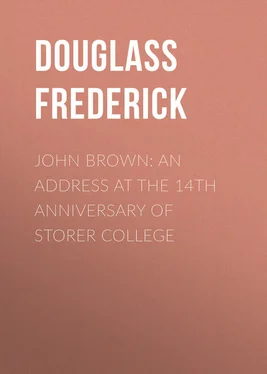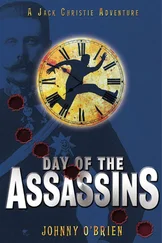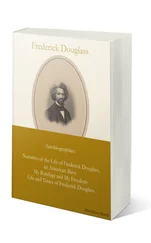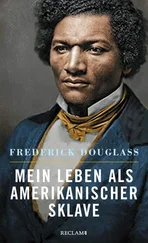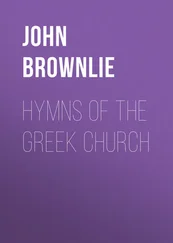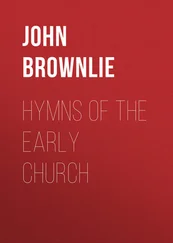Frederick Douglass - John Brown - An Address at the 14th Anniversary of Storer College
Здесь есть возможность читать онлайн «Frederick Douglass - John Brown - An Address at the 14th Anniversary of Storer College» — ознакомительный отрывок электронной книги совершенно бесплатно, а после прочтения отрывка купить полную версию. В некоторых случаях можно слушать аудио, скачать через торрент в формате fb2 и присутствует краткое содержание. Жанр: foreign_antique, foreign_prose, на английском языке. Описание произведения, (предисловие) а так же отзывы посетителей доступны на портале библиотеки ЛибКат.
- Название:John Brown: An Address at the 14th Anniversary of Storer College
- Автор:
- Жанр:
- Год:неизвестен
- ISBN:нет данных
- Рейтинг книги:4 / 5. Голосов: 1
-
Избранное:Добавить в избранное
- Отзывы:
-
Ваша оценка:
- 80
- 1
- 2
- 3
- 4
- 5
John Brown: An Address at the 14th Anniversary of Storer College: краткое содержание, описание и аннотация
Предлагаем к чтению аннотацию, описание, краткое содержание или предисловие (зависит от того, что написал сам автор книги «John Brown: An Address at the 14th Anniversary of Storer College»). Если вы не нашли необходимую информацию о книге — напишите в комментариях, мы постараемся отыскать её.
John Brown: An Address at the 14th Anniversary of Storer College — читать онлайн ознакомительный отрывок
Ниже представлен текст книги, разбитый по страницам. Система сохранения места последней прочитанной страницы, позволяет с удобством читать онлайн бесплатно книгу «John Brown: An Address at the 14th Anniversary of Storer College», без необходимости каждый раз заново искать на чём Вы остановились. Поставьте закладку, и сможете в любой момент перейти на страницу, на которой закончили чтение.
Интервал:
Закладка:
Frederick Douglass
John Brown: An Address at the 14th Anniversary of Storer College
INTRODUCTION
In substance, this address, now for the first time published, was prepared several years ago, and has been delivered in many parts of the North. Its publication now in pamphlet form is due to its delivery at Harper's Ferry, W. Va., on Decoration day, 1881, and to the fact that the proceeds from the sale of it are to be used toward the endowment of a John Brown Professorship in Storer College, Harper's Ferry – an institution mainly devoted to the education of colored youth.
That such an address could be delivered at such a place, at such a time, is strikingly significant, and illustrates the rapid, vast and wonderful changes through which the American people have been passing since 1859. Twenty years ago Frederick Douglass and others were mobbed in the city of Boston, and driven from Tremont Temple for uttering sentiments concerning John Brown similar to those contained in this address. Yet now he goes freely to the very spot where John Brown committed the offense which caused all Virginia to clamor for his life, and without reserve or qualification, commends him as a hero and martyr in the cause of liberty. This incident is rendered all the more significant by the fact that Hon. Andrew Hunter, of Charlestown, – the District Attorney who prosecuted John Brown and secured his execution, – sat on the platform directly behind Mr. Douglass during the delivery of the entire address and at the close of it shook hands with him, and congratulated him, and invited him to Charlestown (where John Brown was hanged), adding that if Robert E. Lee were living, he would give him his hand also.
ADDRESS
Not to fan the flame of sectional animosity now happily in the process of rapid and I hope permanent extinction; not to revive and keep alive a sense of shame and remorse for a great national crime, which has brought its own punishment, in loss of treasure, tears and blood; not to recount the long list of wrongs, inflicted on my race during more than two hundred years of merciless bondage; nor yet to draw, from the labyrinths of far-off centuries, incidents and achievements wherewith to rouse your passions, and enkindle your enthusiasm, but to pay a just debt long due, to vindicate in some degree a great historical character, of our own time and country, one with whom I was myself well acquainted, and whose friendship and confidence it was my good fortune to share, and to give you such recollections, impressions and facts, as I can, of a grand, brave and good old man, and especially to promote a better understanding of the raid upon Harper's Ferry of which he was the chief, is the object of this address.
In all the thirty years' conflict with slavery, if we except the late tremendous war, there is no subject which in its interest and importance will be remembered longer, or will form a more thrilling chapter in American history than this strange, wild, bloody and mournful drama. The story of it is still fresh in the minds of many who now hear me, but for the sake of those who may have forgotten its details, and in order to have our subject in its entire range more fully and clearly before us at the outset, I will briefly state the facts in that extraordinary transaction.
On the night of the 16th of October, 1859, there appeared near the confluence of the Potomac and Shenandoah rivers, a party of nineteen men – fourteen white and five colored. They were not only armed themselves, but had brought with them a large supply of arms for such persons as might join them. These men invaded Harper's Ferry, disarmed the watchman, took possession of the arsenal, rifle-factory, armory and other government property at that place, arrested and made prisoners nearly all the prominent citizens of the neighborhood, collected about fifty slaves, put bayonets into the hands of such as were able and willing to fight for their liberty, killed three men, proclaimed general emancipation, held the ground more than thirty hours, were subsequently overpowered and nearly all killed, wounded or captured, by a body of United States troops, under command of Colonel Robert E. Lee, since famous as the rebel Gen. Lee. Three out of the nineteen invaders were captured whilst fighting, and one of these was Captain John Brown, the man who originated, planned and commanded the expedition. At the time of his capture Capt. Brown was supposed to be mortally wounded, as he had several ugly gashes and bayonet wounds on his head and body; and apprehending that he might speedily die, or that he might be rescued by his friends, and thus the opportunity of making him a signal example of slave-holding vengeance would be lost, his captors hurried him to Charlestown two miles further within the border of Virginia, placed him in prison strongly guarded by troops, and before his wounds were healed he was brought into court, subjected to a nominal trial, convicted of high treason and inciting slaves to insurrection, and was executed. His corpse was given to his woe-stricken widow, and she, assisted by Anti-slavery friends, caused it to be borne to North Elba, Essex County, N. Y., and there his dust now reposes, amid the silent, solemn and snowy grandeur of the Adirondacks.
Such is the story; with no line softened or hardened to my inclining. It certainly is not a story to please, but to pain. It is not a story to increase our sense of social safety and security, but to fill the imagination with wild and troubled fancies of doubt and danger. It was a sudden and startling surprise to the people of Harper's Ferry, and it is not easy to conceive of a situation more abundant in all the elements of horror and consternation. They had retired as usual to rest, with no suspicion that an enemy lurked in the surrounding darkness. They had quietly and trustingly given themselves up to "tired Nature's sweet restorer, balmy sleep," and while thus all unconscious of danger, they were roused from their peaceful slumbers by the sharp crack of the invader's rifle, and felt the keen-edged sword of war at their throats, three of their number being already slain.
Every feeling of the human heart was naturally outraged at this occurrence, and hence at the moment the air was full of denunciation and execration. So intense was this feeling, that few ventured to whisper a word of apology. But happily reason has her voice as well as feeling, and though slower in deciding, her judgments are broader, deeper, clearer and more enduring. It is not easy to reconcile human feeling to the shedding of blood for any purpose, unless indeed in the excitement which the shedding of blood itself occasions. The knife is to feeling always an offence. Even when in the hands of a skillful surgeon, it refuses consent to the operation long after reason has demonstrated its necessity. It even pleads the cause of the known murderer on the day of his execution, and calls society half criminal when, in cold blood, it takes life as a protection of itself from crime. Let no word be said against this holy feeling; more than to law and government are we indebted to this tender sentiment of regard for human life for the safety with which we walk the streets by day and sleep secure in our beds at night. It is nature's grand police, vigilant and faithful, sentineled in the soul, guarding against violence to peace and life. But whilst so much is freely accorded to feeling in the economy of human welfare, something more than feeling is necessary to grapple with a fact so grim and significant as was this raid. Viewed apart and alone, as a transaction separate and distinct from its antecedents and bearings, it takes rank with the most cold-blooded and atrocious wrongs ever perpetrated; but just here is the trouble – this raid on Harper's Ferry, no more than Sherman's march to the sea can consent to be thus viewed alone.
Читать дальшеИнтервал:
Закладка:
Похожие книги на «John Brown: An Address at the 14th Anniversary of Storer College»
Представляем Вашему вниманию похожие книги на «John Brown: An Address at the 14th Anniversary of Storer College» списком для выбора. Мы отобрали схожую по названию и смыслу литературу в надежде предоставить читателям больше вариантов отыскать новые, интересные, ещё непрочитанные произведения.
Обсуждение, отзывы о книге «John Brown: An Address at the 14th Anniversary of Storer College» и просто собственные мнения читателей. Оставьте ваши комментарии, напишите, что Вы думаете о произведении, его смысле или главных героях. Укажите что конкретно понравилось, а что нет, и почему Вы так считаете.
